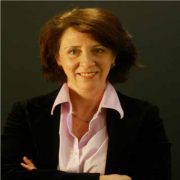

Dr. Galit Wellner
The Healthy Longevity Research Center
Dr. Galit Wellner, PhD, lectures at Tel Aviv University. Dr. Wellner specializes in philosophy of digital technologies and their inter-relations with humans. She is an active member of the Postphenomenology community. Her book A Postphenomenological Inquiry of Cellphones: Genealogies, Meanings and Becoming was published in 2015 in Lexington Books. She translated to Hebrew Don Ihde’s book Postphenomenology and Technoscience (Resling 2016). She also co-edited Postphenomenology and Media: Essays on Human–Media–World Relations (Lexington Books, 2017). Galit is interested in the ways in which digital technologies transform medical and scientific practices.
The potential roles of ICT for alleviating social frailty in older adults: Elderly people are prone to become lonely and socially isolated, especially in times of pandemics. Dr. Wellner examine the role of ICT in this complex process with tools from philosophy of technology. The hypothesis is that greater social frailty will be associated with reference to ICT as a quasi-other (alterity relations), and lower social frailty will be associated with embodying ICT and turning the technology into part of the user’s body scheme (embodiment relations).
The “Data-fied” self – Health and happiness in the digital age: Digital technologies enable an efficient collection of data in real time and effortlessly in order to produce an omics portrait. Why do people constantly measure themselves? And why do they publish their omics? Privacy can hardly explain this phenomenon, as visibility is no longer a threat, but rather the invisibility. The socio-ethical challenges are now in developing risk awareness and new tools to investigate health-related risks.
The Healthy Longevity Research Center
- Philosophy of Technology Meets Medicine

